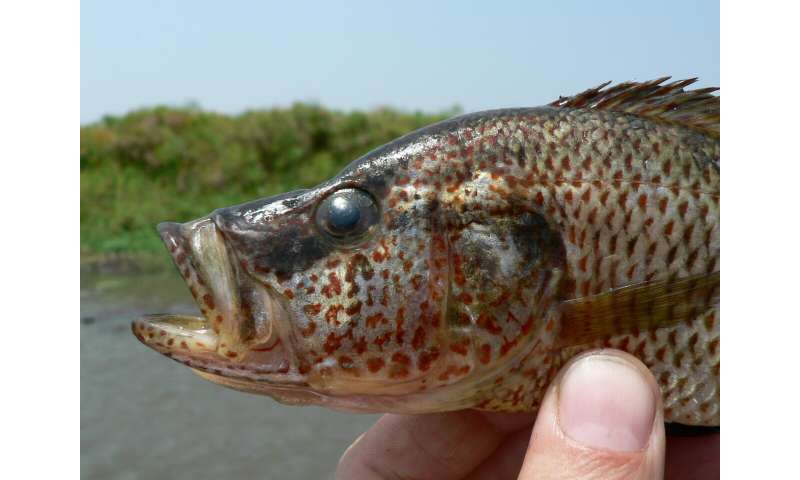
One of the new predator cichlid fish species that evolved in Lake Mweru/Ole Seehausen
Granted these are cichlids. Female fish can breed a new species, we are told,
… if they aren’t choosy about who is Mr. Right. Fish will mate with a species outside their own if the male’s coloring is attractive enough or if the female can’t see him properly, according to new research. Such ‘mistakes’ in mate choice can lead to the evolution of new species, an international team of scientists found after they analyzed the DNA of more than 400 cichlid fish…
The so-called ‘hybrid offspring’ can feed on different things to their parents and invade new habitats — like swimming into deeper areas of the lake. It is unclear whether all of the species will survive as they may compete with each other and die out.
Dr Meier said: “Our research shows that hybridisation can fuel the evolution of new species which is a very novel finding. Hybridisation has traditionally been viewed as something bad because if species hybridise they can, over time, merge into a single species and you lose biodiversity or lose the local species. The melting pot of Lake Mweru gave us a rare opportunity to study interactions between evolving new species and showed that in a new environment with lots of ecological opportunity hybridisation can be a good thing that actually increases biodiversity.”
St John’s College, University of Cambridge, “Female fish can breed a new species if they aren’t choosy about who is Mr. Right” at ScienceDaily
A “very novel” finding? It rather sounds as if “species,” as in On the Origin of Species, doesn’t matter very much at all.
Paper. (open access)
A friend took a quick look at it: “What jumps out is that they’re saying ‘species’ arise through, basically, hybridization of similar species. Seems to me we’re right back to a problem Origin of Species has: it never really defines what a species is. And, here, we’re not talking about a new “species” through gradual change, but through a sudden change brought about through hybridization. Sure seems like hybridization explains a lot. Just think of the latest from the Galapagos Islands and Darwin’s Finches. There, too, they have found, IIRC, that changes in beak size are brought about through hybridization.
“Cichlid fish are touted as evolving so fast. Well, hybridization may be the explanation for this putative fast evolution.”
But the cichlids were absolutely poster fish for natural selection acting on random mutation (Darwinism) to produce new species. If even cichlids can’t do Darwinism reliably, how important a vector in evolution can it be?
See also: A physicist looks at biology’s problem of “speciation” in humans
Follow UD News at Twitter!